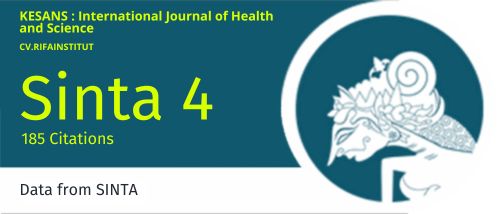Social Determinant Factors on HIV/AIDS Prevention in Marginalized Communities: Systematic Literature Review
DOI:
https://doi.org/10.54543/kesans.v4i8.362Keywords:
Education, Awareness, Social Support, Socio-economic, Health Care, HIV/AIDSAbstract
Human immunodeficiency virus (HIV) is an infection that attacks the body’s immune system, specifically the white blood cells called CD4 cells. HIV destroys these CD4 cells, weakening a person’s immunity against opportunistic infections, such as tuberculosis and fungal infections, severe bacterial infections, and some cancers. The purpose of this systematic review is to evaluate the current social determinant factors of HIV/AIDS prevention in marginalized communities. The study employs the PRISMA Method to systematically review HIV/AIDS prevention articles from databases PUBMED, BMC, and Google Scholar. The review includes search, screening, data extraction, and analysis, with 40 papers acquired and a selection procedure to meet inclusion and exclusion criteria. This study finds a need for a comprehensive approach to combat the HIV epidemic, including addressing socioeconomic determinants like poverty, stigma, and healthcare access. Collaboration between policymakers, healthcare providers, and community members is crucial for developing effective prevention and treatment strategies.
Downloads
Published
How to Cite
Issue
Section
Citation Check
License
Copyright (c) 2025 Marcos Carvalho, Levi Anatolia Soares Maia Exposto, Daniela Rolandia Maria Umbelina Fernandes, Elias Pereira Moniz, Aniceto da Conceicao Pacheco

This work is licensed under a Creative Commons Attribution-ShareAlike 4.0 International License.





















